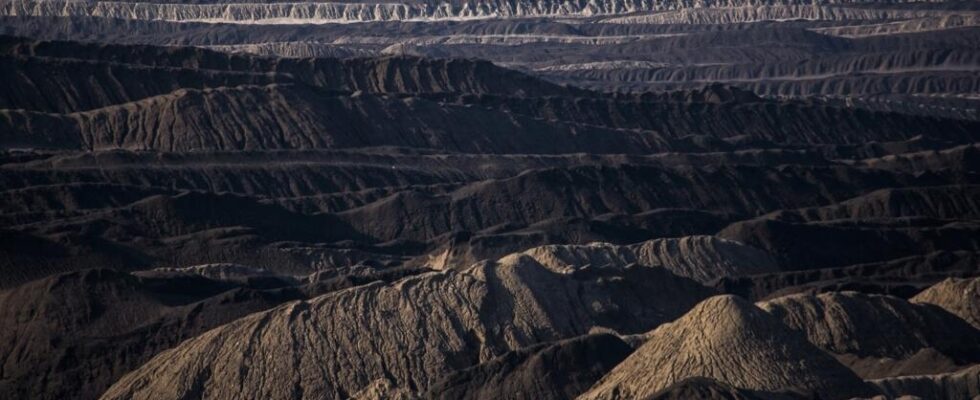Germany has decided to turn the page on coal, by 2038 at the latest. Lusatia, a mining region located 150 km south of Berlin, in the former GDR, is particularly concerned. Five lignite mines, this poor quality coal that is particularly polluting, are still exploited there, supplying two power stations that are still vital for the region. But the time has come for change.
In Grossräschen, almost everything is in place to turn the page on coal. The colossal fault dug into nature by decades of open-air mining since the GDR has been transformed into a lake. A small port awaits boats, the beach is ready to welcome swimmers and the local vineyard which extends along the banks of the lake already produces 10,000 bottles of several award-winning wines each year. Eckhard Hoika, a former mining employee, has converted to tourism.
“ My family lived here in the area, and was displaced because of coal. I can no longer show my children where I played in my youth, all these places no longer exist and are now swallowed up, he testifies. I myself worked in construction, for the mines. It was our life. In 2003, I started my own business, and I organize tourist trips here in the region “, he confides.
Villages wiped off the map
In Lusatia, nature has been turned upside down by the hand of an unleashed giant. In 100 years of exploitation, dozens of villages have been wiped off the map, their inhabitants displaced. Forests cut down. The revitalization of the deposits, their transformation into artificial lakes, will have cost more than 15 billion euros.
“ Up to 75,000 people worked for coal here in Lusatia alone during the GDR. They extracted up to 200,000 tonnes per year. It’s true, flooding the mines is a colossal attack on the landscape. In the end, it’s not necessarily more beautiful than before coal, it’s different. And several of the lakes already completed are successful. In the United States, Canada and Australia, mining companies leave mines abandoned, without revitalizing them. You have before your eyes the biggest landscaping project in Europe, we are moving enormous quantities of earth, we are throwing enormous sums of money in the sand, but in a positive way. Here new landscapes usable by man are born », Explains Uwe Steinhuber, spokesperson for the public company LMBV and responsible for the work.
Vineyard and tourists on bikes will not be enough to keep Lusatia alive. With the support of the European Union, which is investing billions in the region, Lusatia hopes to become a hub for renewable energy and future technologies.
Read alsoCoal: recomposition of demand, which still remains record high in Asia
